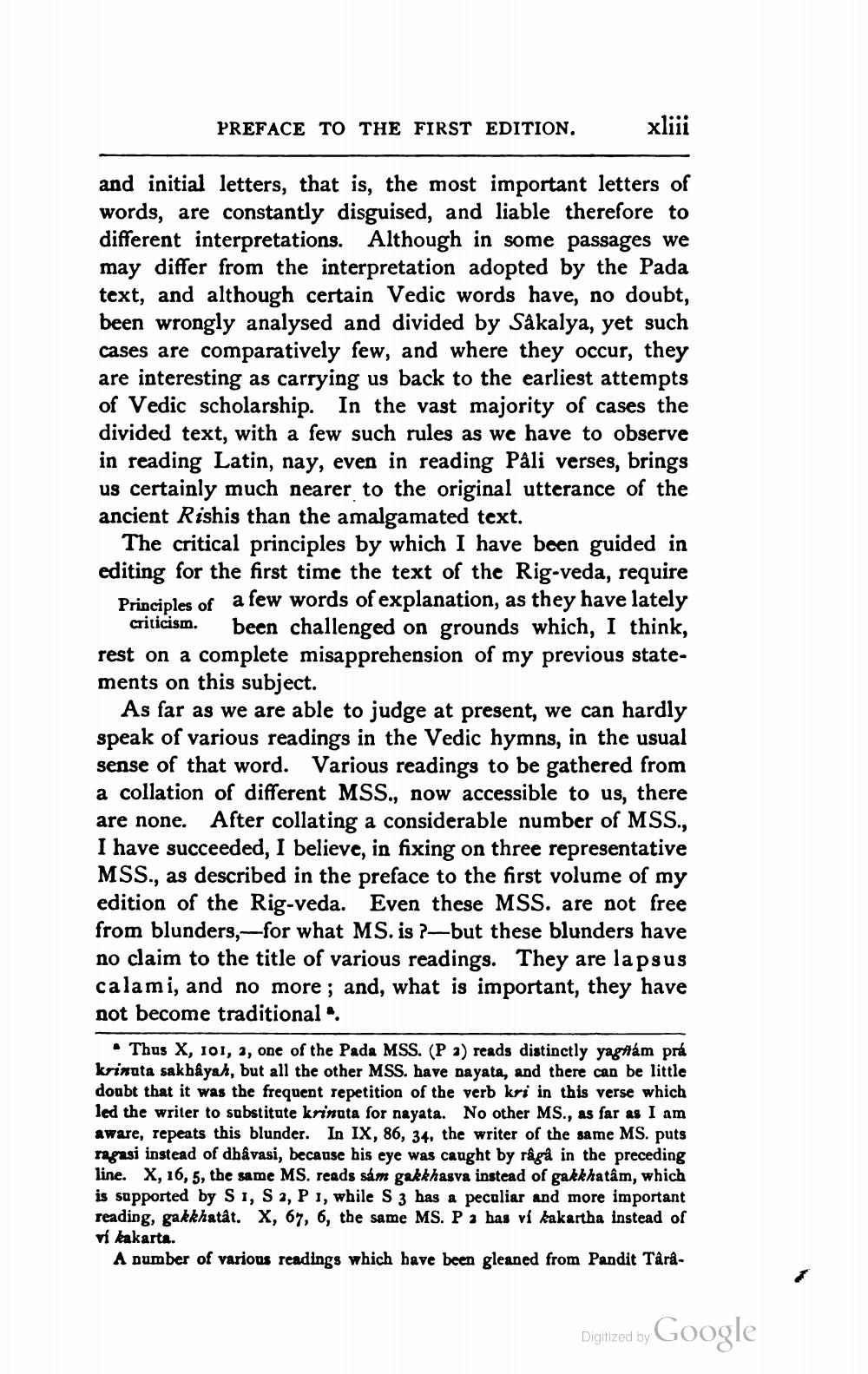________________
PREFACE TO THE FIRST EDITION.
xliji
and initial letters, that is, the most important letters of words, are constantly disguised, and liable therefore to different interpretations. Although in some passages we may differ from the interpretation adopted by the Pada text, and although certain Vedic words have, no doubt, been wrongly analysed and divided by Såkalya, yet such cases are comparatively few, and where they occur, they are interesting as carrying us back to the earliest attempts of Vedic scholarship. In the vast majority of cases the divided text, with a few such rules as we have to observe in reading Latin, nay, even in reading Påli verses, brings us certainly much nearer to the original utterance of the ancient Rishis than the amalgamated text.
The critical principles by which I have been guided in editing for the first time the text of the Rig-veda, require Principles of a few words of explanation, as they have lately
criticism. been challenged on grounds which, I think, rest on a complete misapprehension of my previous statements on thi
As far as we are able to judge at present, we can hardly speak of various readings in the Vedic hymns, in the usual sense of that word. Various readings to be gathered from a collation of different MSS., now accessible to us, there are none. After collating a considerable number of MSS., I have succeeded, I believe, in fixing on three representative MSS., as described in the preface to the first volume of my edition of the Rig-veda. Even these MSS. are not free from blunders,- for what MS.is - but these blunders have no claim to the title of various readings. They are lapsus calami, and no more ; and, what is important, they have not become traditional
• Thus X, 101, 2, one of the Pada MSS. (P 2) reads distinctly yagtám prá krinuta sakbâyah, but all the other MSS. have nayata, and there can be little doubt that it was the frequent repetition of the verb kri in this verse which led the writer to substitute krinata for nayata. No other MS., as far as I am aware, repeats this blunder. In IX, 86, 34, the writer of the same MS. puts rogasi instead of dhavasi, because his eye was caught by rågå in the preceding line. X, 16, 5, the same MS. reads sám gakkhasva instead of gakkhatâm, which is supported by S1, S2, P1, while S 3 has a peculiar and more important reading, gakkhatát. X, 67, 6, the same MS. P a has vi kakartha instead of vi kakarta.
A number of various readings which have been gleaned from Pandit Tara
Digitized by Google




